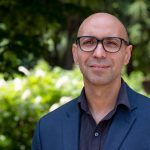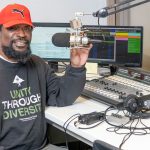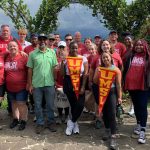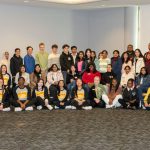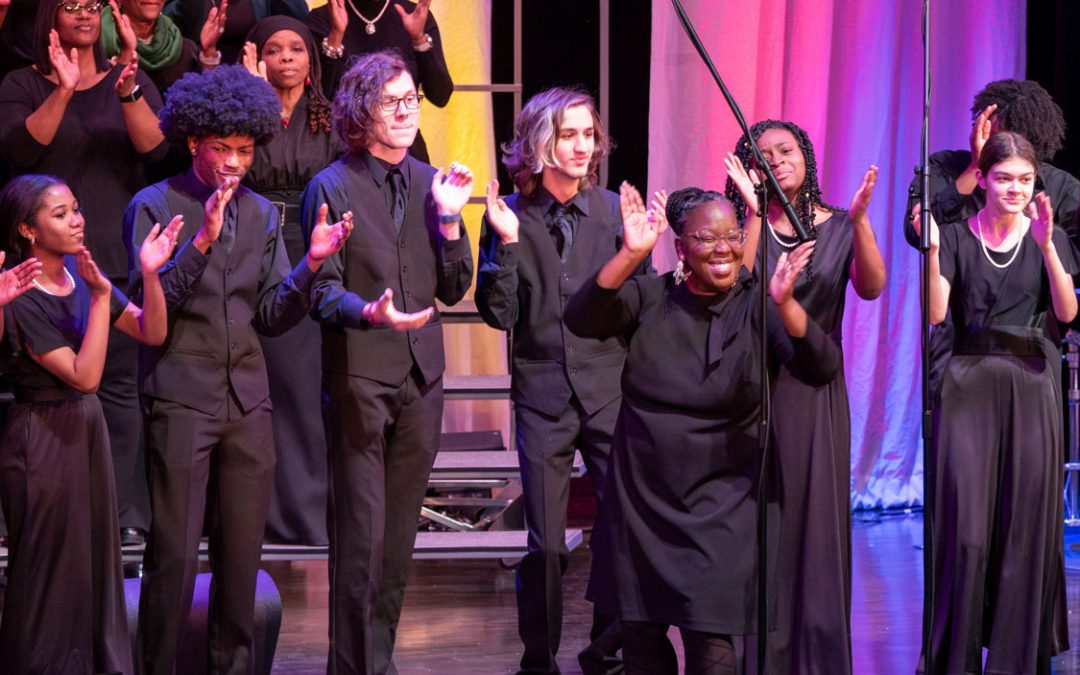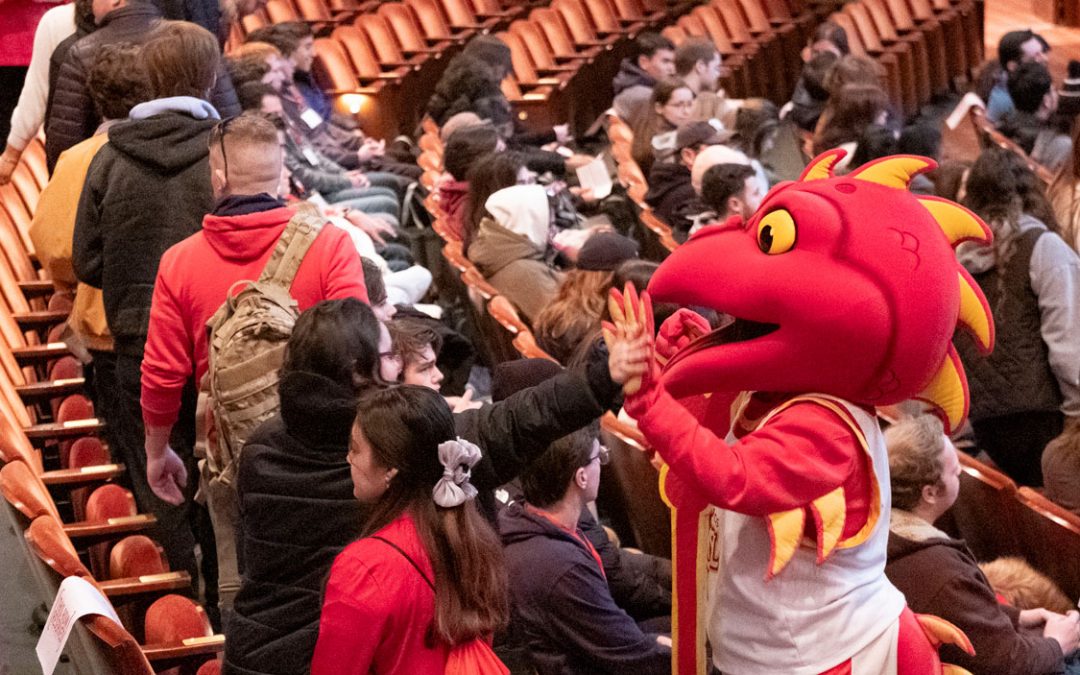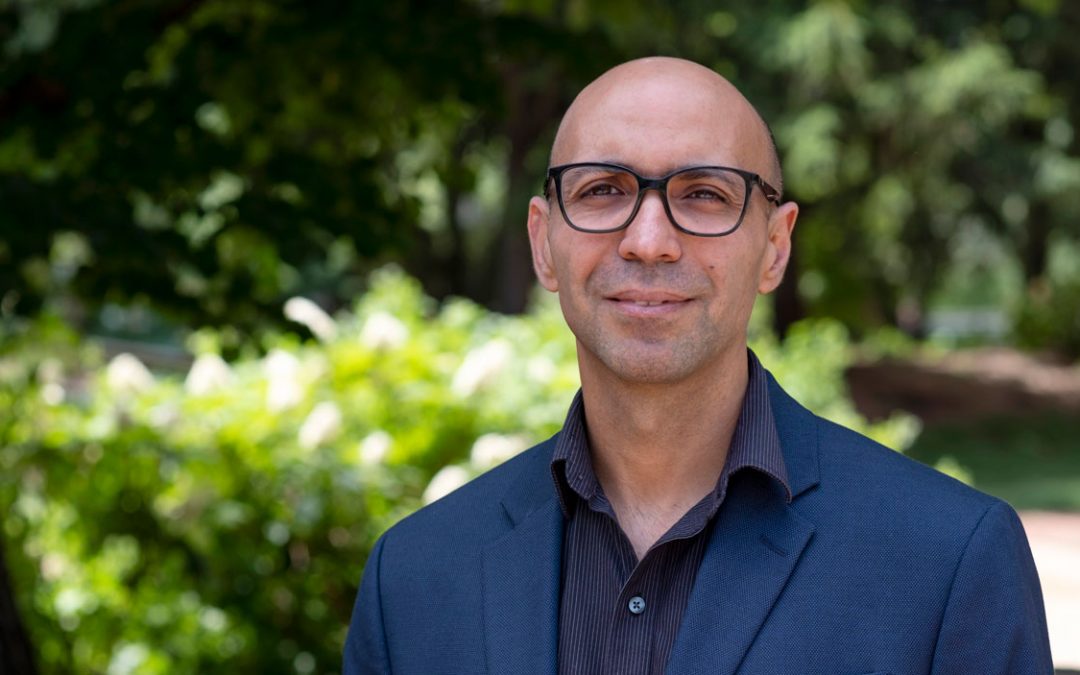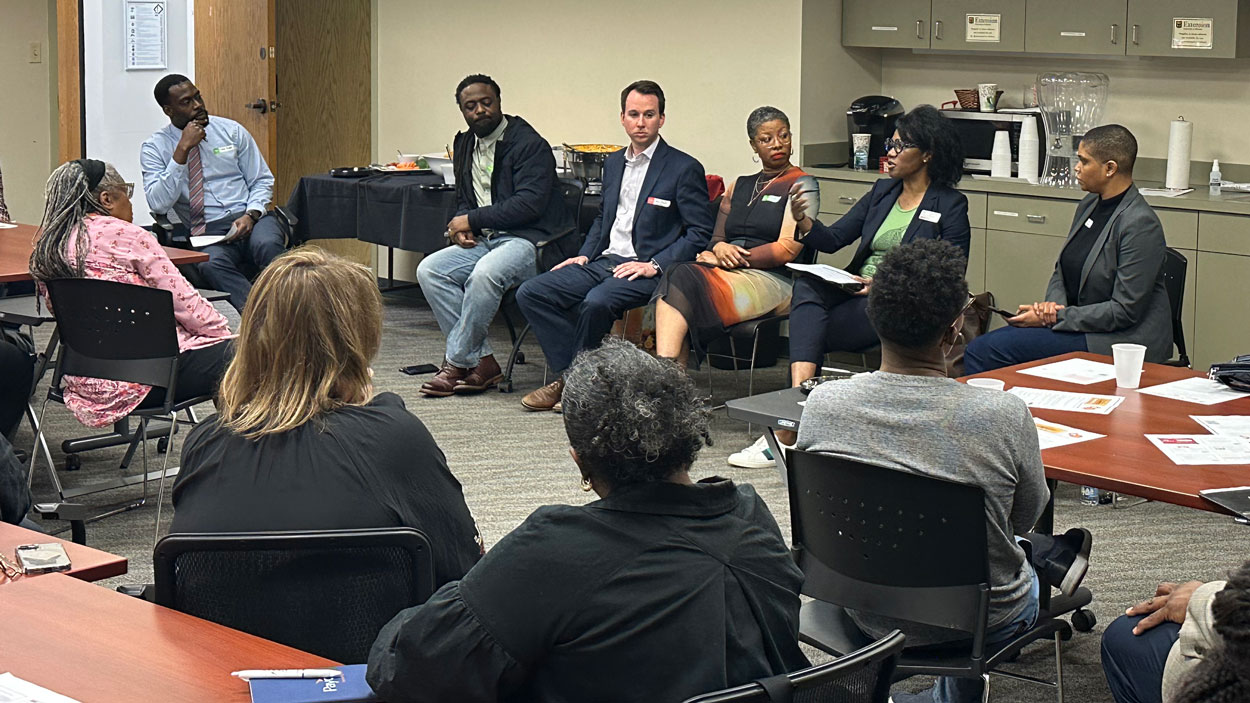
St. Louis Anchor Action Network Director Stefani Weeden-Smith (second from right) speaks during a panel discussion held as part of an UMSL-hosted community dialogue on “Economic Justice: What’s Possible in the 314?” held last Thursday at the Regional Center for Education and Work. (Photos by Steve Walentik)
March 14 has become an unofficial holiday in the St. Louis region due to its numerical representation – 3/14 – matching the city’s original area code.
As many people across the area donned their St. Louis flag T-shirts and dined on Imo’s pizza and toasted ravioli to mark the occasion, the University of Missouri–St. Louis hosted a forum aimed at sparking discussion about ways to improve equity and prosperity across the region.
Nearly 50 people, including members of the UMSL faculty and staff as well as roughly two dozen community members, gathered in the Regional Center for Education and Work last Thursday afternoon to take part in the event titled “Economic Justice: What’s Possible in the 314?”
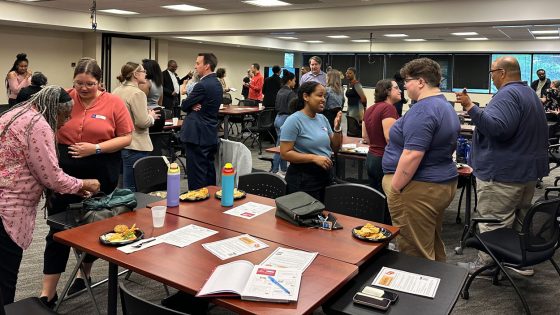
Attendees of last Thursday’s community forum talk one-on-one in an icebreaking activity at the Regional Center for Education and Work. Nearly 50 people attended the event, including a mix of UMSL faculty and staff as well as community members.
The second installment of the UMSL Forum for Community Dialogue series launched last fall produced a lively discussion, even if it was interrupted briefly by tornado sirens going off in north St. Louis County, prompting participants to huddle a little closer together and away from windows to continue the conversation.
“We just wanted to start with a basic understanding of what economic justice is – a basic set of moral principles for which economic infrastructure is developed around the ultimate goal, which is to create an opportunity for each person to create a sufficient material foundation upon which to have a dignified, productive and creative life,” said Myron Burr, a senior project and program coordinator at UMSL who served as the moderator for the event. “The goal of economic justice really is to create opportunities for all.”
Burr guided a panel discussion between five individuals who’ve been working toward that objective in the St. Louis region. They were Stefani Weeden-Smith, the director of the St. Louis Anchor Action Network co-led by UMSL and Edward Jones; Jaclyn Belt, an UMSL MPPA graduate and the chief transformation officer at Beyond Housing; Kelly McGowan, the founder and executive director of Transform 314; and Durrell Smith and Stephen Davis, both of the St. Louis Development Corporation. Smith serves as the vice president of neighborhood transportation while Davis works as the vice president for strategic partnerships and initiatives.
Each discussed their own work and different initiatives underway across the region aimed at growing equity and expanding opportunity.
“In September 2022, SLDC, under the leadership of our CEO, Neil Richardson, released what’s called the economic justice action plan,” Davis said. “It’s not just another plan but concrete steps to how we can achieve economic justice and correct generations of disinvestment in some of the most underserved communities in the city of St. Louis.”
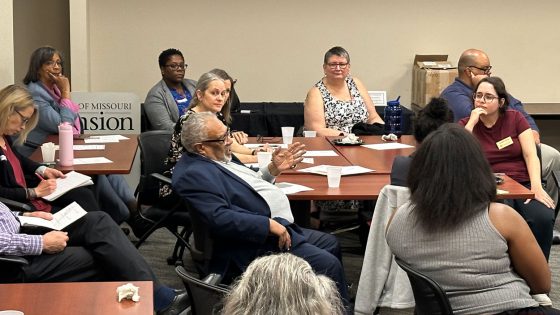
New Horizons United Methodist Church Pastor Ivan James (center) speaks during a question-and-answer session with members of the panel during Thursday’s event.
At the center are efforts to expand access to capital so they can empower small businesses so that they have opportunity to develop and help transform the neighborhoods in which they operate.
The St. Louis Anchor Action Network, meanwhile, is working with some of the region’s largest employers – including hospitals and universities – and helping them examine their own practices so they can be more intentional about increasing hiring and purchasing in 22 ZIP codes, mostly in north St. Louis city and north St. Louis County.
“All these numbers and measurements, none of it will be worth it unless the people who live in these communities feel that,” Weeden-Smith said. “That’s where true change through culture shift can happen.”
Attendees had an opportunity to ask questions of the panelists and ended the afternoon by engaging in discussion with each other using the National Issues Forums Institute model of deliberative dialogue. It relies on guided conversations on political or controversial topics and asks participants to gather in small groups to investigate specific solutions to issues with the help of a facilitator.
The event was put on through collaboration from UMSL’s Office of Economic and Community Development; UMSL’s Office of Diversity, Equity and Inclusion; Creating Whole Communities; and the University of Missouri Extension.





